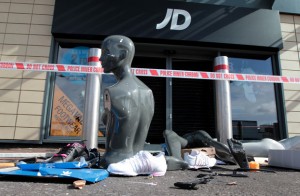Join the Atos Games with Disabled People Against Cuts
Join Disabled People Against Cuts for The Atos Games From Monday 27 to Friday 31 August – five days of action against a company that’s sponsoring the Paralympics but wrecking disabled people’s lives.
We are calling on disabled people, disabled activists, families, colleagues, friends and supporters to come together and fight back against Atos’s attacks. Atos represents as dangerous an opponent as any government, law or barrier the disability movement has faced in its long history. It’s not just welfare, but our very identity and our place within society that is under attack.
We are asking the whole of the anti-cuts movement to join us in our opposition to the company most responsible for driving through the government’s brutal cuts agenda.
Let’s make it Games over for Atos!
We’re not against the Paralympics, or the people taking part in it. We’re highlighting the hypocrisy of Atos, a company that soon may be taking disability benefits from the people winning medals for Team GB.
Ever since George Osborne announced he was slashing £18 billion from the welfare budget, the government has paid Atos £100 million a year to test 11,000 sick and disabled people every week – then decide whether they’re ‘fit for work’.
Atos uses an inhumane computer program to do the testing and trains its staff to push people off benefits. The government has admitted the tests are flawed and the British Medical Association wants them to end immediately.
So – join in The Atos Games however you can – online, on the phone, or on the streets!
• Monday 27: A coffin full of your messages about Atos will be delivered to its doorstep.
• Tuesday 28: Pay a visit to your local Atos office – and maybe even take your protest inside!
• Wednesday 29: We’ll hold a spoof Paralympic awards ceremony – hopefully with some very special guests…
• Thursday 30: Phone jam! Let’s flood Atos with calls, and generate a Twitter-storm they can’t ignore!
• Friday 31: Join us in London where we’re teaming up with UK Uncut for the Grand Finale – an audacious, daring and disruptive action. Last time we shut down Oxford Circus. This time we will be performing miracles…!
We’ll give more details about each day of action. We’ll make sure that DPAC members and disabled people who can’t travel will be able to take part in different and accessible ways.
We’d really like YOU to make this week of action a great success!
Atos has offices in most towns across the country, so start organising an action for August 28 at your local Atos now!



